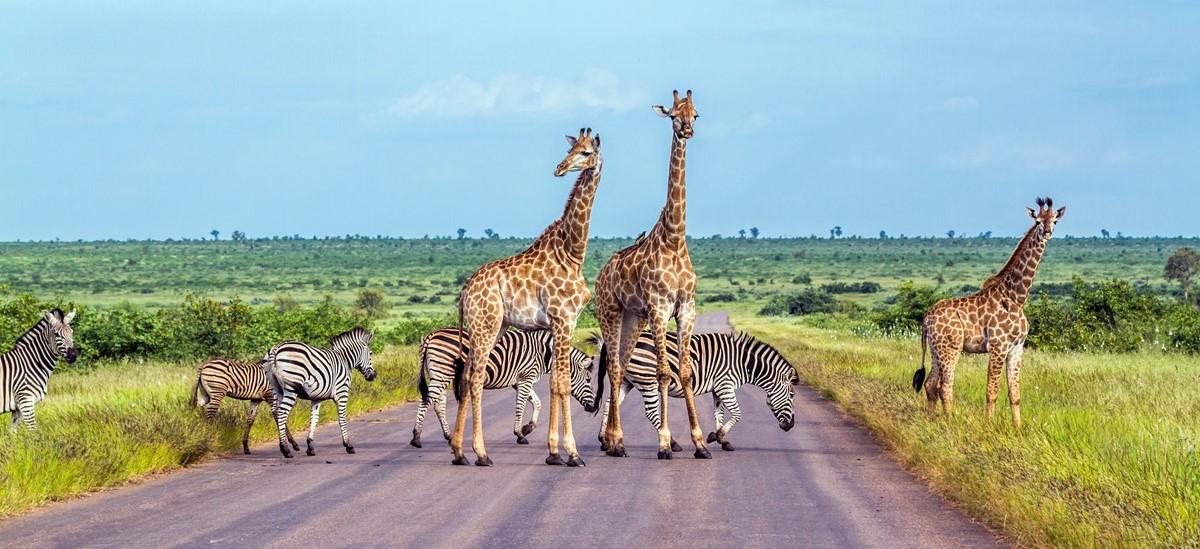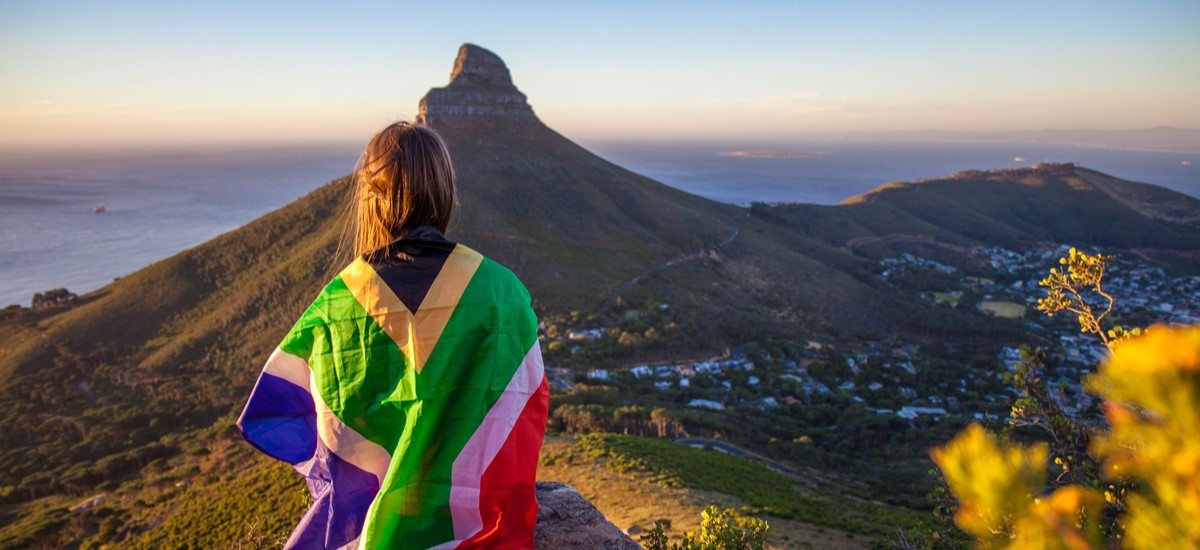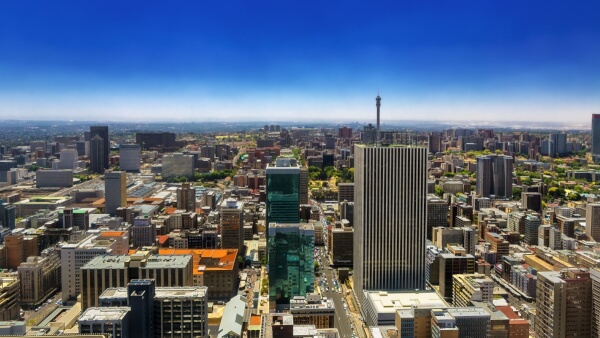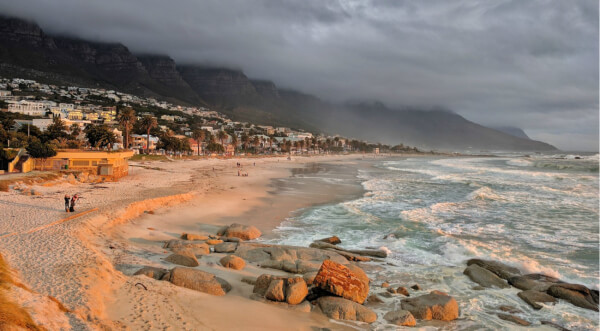Cash or card in South Africa: Which is the best way to pay?
Should you pay with cash or card in South Africa? A handy guide including cash etiquette, South African ATMs and using your UK card.

Planning a trip to South Africa from the UK? You might be sightseeing or going on safari, or perhaps working or studying there.
Whatever your plans, you’ll need to read up on the rules on what you can and can’t bring into the country - including cash.
To help, we’ve put together a complete guide to the rules and limits for taking cash in or out of South Africa. This includes how and when to declare cash to customs, and what may happen if you carry too much without declaring it.
We’ll also show you a convenient cash-free alternative for spending in South Africa and worldwide - the Wise card.
You can enter South Africa with any amount of cash in any currency. However, you must make a declaration to customs officials if you’re carrying cash worth 25,000 South African rand (ZAR) or more.1
This is only around £1,085 in GBP, so it’s easy for British travellers to inadvertently fall foul of the rules.
For the purposes of moving it across international borders, the following are usually classed as cash:

Yes, there are likely to be penalties if you bring too much cash into South Africa and fail to declare it to customs officials.
It is considered an offence, and may result in fines or a prison term.2
At the very least, it’s likely that the money will be seized.
If you’ve never had to deal with customs authorities in another country, it’s only natural to feel a little daunted at the prospect.
To give you an idea of what to expect, we’ll run through the typical processes for declaring excess currency on arrival in South Africa.
If you want to breeze through the airport on arrival and avoid delays at customs, you can declare cash before you fly to South Africa.
The country has a relatively new process for doing this - the South African Customs online traveller declaration system. It’s optional at the moment, but is likely to become mandatory in the future.
You can fill out an online form here to declare cash before you travel. You’ll get an email confirmation, which you’ll need to show to customs officials at the airport when you arrive in South Africa.3
To declare cash at an airport or seaport (i.e. a cruise terminal) once you arrive in South Africa, follow these steps:
It’s also possible to complete the online declaration form once you land. You’ll need to download the SARS Mobi App and then scan the QR Code which should be on display in Customs within the airport.1
If you can’t find a declaration point, ask at the airport or seaport’s information desk. You can also find contact details for South Africa airport customs services here.
While you may not be asked for all of it, it’s sensible to have the following ready to provide at customs:

You can take cash worth up to 25,000 South African rand (ZAR) out of the country without needing to declare it to customs officials. Anything over this must be declared at the border.1
Each country in Africa will have its own rules and limits for how much cash you can bring in before needing to make a customs declaration. So, it’s a smart idea to do some research in advance on the country you’re travelling to.
There are also the UK’s own rules to bear in mind. You can take up to £10,000 GBP in or out of the UK without having to make a customs declaration.4
If you bring too much cash into South Africa and fail to declare it, you risk your money being seized.
You may also be ordered to pay a fine or face a prison term, depending on the severity of the offence.2
No matter where you’re travelling to once you leave South Africa, you’ll need to declare any cash exceeding 25,000 ZAR to customs authorities.1
All onward destinations require a customs declaration if you’re carrying more than 25,000 ZAR, except if you’re travelling between cities or locations within South Africa itself.

Travelling with large amounts of cash is a security risk, so it’s best avoided unless absolutely necessary. Consider spending on a card instead or withdrawing cash at a South African ATM when you arrive.
If you do need to carry cash, the safest way to do it is on your person, in a money belt underneath your clothes.
Carrying a big wad of cash isn’t very discreet, and it’s risky too. If it’s lost or stolen, you’d be left with nothing.
So consider splitting your money between a money belt worn on your person, between members of your travelling party, and between pieces of luggage too.
If you’re carrying money to pay for your trip and need to exchange it once you get to South Africa, you might struggle to find a good deal.
This is especially true of exchanging cash in airports and hotels, where exchange rates are notoriously poor.
Rather avoid the worry and inconvenience of carrying cash overseas? Check out the Wise card instead.
It’s a truly international debit card, as it works in 150+ countries including South Africa without any foreign transaction fees*.
Best of all, your Wise card automatically converts currency at the mid-market exchange rate whenever you spend, for just a small conversion fee*. If you already have the currency in your Wise account, there’s no fee to pay.
You can also use Wise to send money worldwide for great exchange rates and low fees*
Along with cash, you also need to declare the following when arriving or leaving in South Africa:1
There aren’t any rules for how much cash you can take on a flight, no matter which airline you travel with. All that matters are the customs rules at the border - for the country you’re leaving and the destination you’re arriving at.
For South Africa, you can enter with up to 25,000 ZAR without needing to make a customs declaration.1
Yes, your UK debit card should be accepted in South Africa wherever you see the Mastercard or Visa symbol. This includes shops, bars, restaurants, hotels and public transport, as well as ATMs.
As the nation’s capital and a major city, debit and credit cards are widely accepted in Cape Town. So you may not need much cash. If you do choose to carry some, make sure you keep it somewhere safe such as in a money belt underneath your clothes.
Debit and credit cards are widely accepted in South Africa, especially in major towns and cities.
However, there may be places where cash is best - such as in rural or remote parts of the country, or in smaller shops and cafes. You may also need cash for tipping, shopping at markets, public transport and buying street food.
So, it’s best to take a mix of cash and card to South Africa with you.
Sources used:
1. South African Revenue Service - info for travellers to South Africa
2. South African Revenue Service - Customs external policy on excess currency
3. South African Revenue Service - Customs Online Traveller Declaration form
4. GOV.UK - taking cash in and out of the UK
Sources last checked on date: 17-Jan-2025
*Please see terms of use and product availability for your region or visit Wise fees and pricing for the most up to date pricing and fee information.
This publication is provided for general information purposes and does not constitute legal, tax or other professional advice from Wise Payments Limited or its subsidiaries and its affiliates, and it is not intended as a substitute for obtaining advice from a financial advisor or any other professional.
We make no representations, warranties or guarantees, whether expressed or implied, that the content in the publication is accurate, complete or up to date.

Should you pay with cash or card in South Africa? A handy guide including cash etiquette, South African ATMs and using your UK card.

Read our complete guide to the South Africa digital nomad visa, covering fees, documents, eligibility requirements and how to apply.

Check out our in-depth guide on everything you need to know about buying a prepaid South Africa SIM card, including different providers, pricing, and features.

Travelling to South Africa soon? Don’t let sickness ruin your trip with this guide to all you need to know about travel health and vaccinations for South Africa

Sometimes called the Rainbow Nation because of its diversity of cultures, people all over the world are increasingly noticing South Africa — and for good...

South Africa is a hugely popular destination for holiday-makers and expats alike. And it’s easy to see why. From vibrant cities to some of the continent’s...